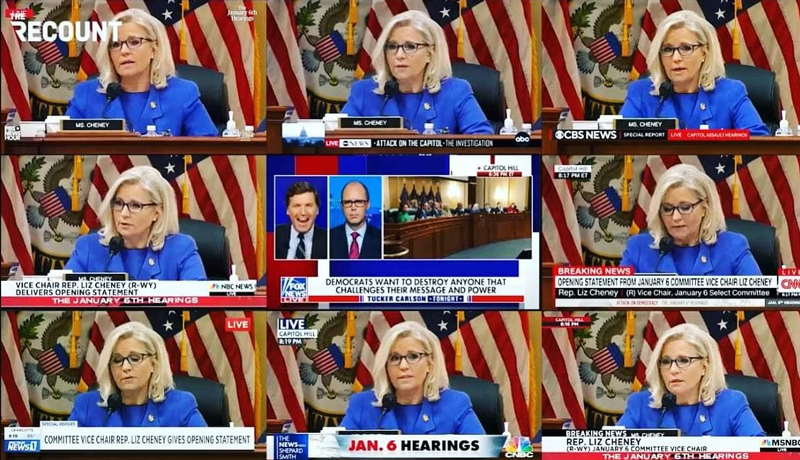An episode of the High Noon podcast featuring Oren Cass brought to mind a point relevant to my break from social media.
Cass is, in some respects, a contrarian in conservative circles, expressing some healthy skepticism against the free-market bent of the Right (a bent, to be clear, toward which I definitively incline). The assumptions of free market economics, he suggests, are not always correct, especially to the extent that free-marketers assume their philosophy will be to the benefit of all (or to the degree that they studiously avoid concentrating on those whom it does not benefit).
In this regard, the same category error affects both sides of the debate. Free market economics should not be mistaken for a comprehensive philosophy. Like science, math, altruism, and any other consideration, it describes a system of thought within defined boundaries. Just so, self-improvement books tend to totalize specific areas of focus that may or may not be relevant to a particular person in a particular set of circumstances. Some describe the “ought” of what we should pursue, while some describe the “does” of how things work, and all must be understood within their own limits.
Free-market economics are much more within the “does” category than the “ought” category, and we go wrong when we blur the lines.
The above-mentioned podcast raises a point (incidentally and tangentially, to be sure) that should be valuable to both sides of the ideological divide. The key point, to my mind, when it comes to the evolution of the market and the loss of traditional ways of doing, is that we need to be aware of what is and what is changing.
In the past, technology and the capacity for transportation imposed restrictions that no longer apply, and sometimes those natural limitations benefited the human sociological system overall. A wise progress will seek to understand what is being lost to change and look for ways, not to maintain the limitations, but to preserve (conserve) that which is valuable.
There is a value to looking people in the eye. There is a value to interacting with people who share your geography rather than your ideology. We lose these things as our lives turn virtual or unbounded by location. We need to think about that value, and like a person who places sticky notes everywhere to remind him or herself of things, we need to find ways to keep them in our awareness.
Featured image by Theodore Gericault on Unsplash.
[Open full post]On WNRI 1380 AM/95.1 FM, John DePetro and Justin Katz discuss:
- The old politics fail with gun bills
- Voting bill on the path to destroying RI elections
- The ticking time bomb of Providence’s pension obligation bond
- The same old game of the soccer stadium
- The car tax elimination as a cheap payoff to taxpayers as a special interest
Featured image by Crawford Jolly on Unsplash.
[Open full post]The totalitarian Communist language of administrators in the Foster-Glocester school district is reason for concern about the direction in which our country is headed:
Several students at Ponaganset High School brought “anti-tolerant” flags to school following a celebration of Pride Month.
In an emailed statement to The Journal, district leaders said there had been an “isolated incident” following the kickoff of Pride Month last week.
A day after the celebration, an administrator noticed some students had flags “symbolizing anti-tolerance culture, which is against core values of our district,” read the statement, signed by Foster Supt. Michael Barnes, Glocester Supt. Renee Palazzo and Ponaganset High School Principal Amanda Grundel.
This report, from Linda Borg in the Providence Journal, cites “a Confederate flag and a flag that directed an obscenity at President Joe Biden.” Elsewhere, a self-acknowledged activist mentions “‘Don’t Tread on Me’ capes” and “‘2024 Trump Returns’ shirts.”
I haven’t been able to find the images quickly, so I can’t report what the prominence and balance of the different messages and symbols was. However, the message from administrators makes that less relevant. When authorities talk about “anti-tolerance culture,” they aren’t condemning particular language or contentious symbols from the ugly parts of the nation’s past. They’re condemning a subculture within their community.
Vulgarity on school grounds is open for restriction (“Let’s Go Brandon” would have been preferable), and the Confederate flag, at the very least, justifies discussion about the bearer’s intent. But these “educators” are not offering nuanced critiques or working to balance freedom with community. Their language is all about stamping out disagreement with their preferred ideology:
Our district condemns any and all hate speech in all forms, and we will not tolerate any behavior by any member of our school community who behaves contrary to that principle.
“Any and all hate speech in all forms.” What does that deliberately (and redundantly) broad condemnation include and not include? We can’t know. And what does it mean to “behave contrary to that principle”? Is it enough to tolerate — on First Amendment grounds — students’ expression of ideas the administration doesn’t like? This sounds a lot more like “anti-tolerance culture” than anything I’ve read about the students.
Of course, redefining words to mean their opposite as a method of thought control is a standard Marxist technique. Students are on notice; they must be tolerant of who and what authorities tell them to be tolerant of and intolerant of anything that so much as questions the diktat.
Don’t let this story slip by, because it’s much more relevant than just a school administration cracking down on some contentious teens.
Featured image by Engin Akyurt on Unsplash.
[Open full post]Guest: Seth Magaziner, Candidate for Congress, District 2, www.sethmagaziner.com
Host: Richard August Time: 30 minutes
Description: General Treasurer Seth Magaziner is seeking the RI Democratic Party’s nomination for US Congress, District 2. At the onset he offers his reasons for seeking this Congressional seat. The discussion touches on a variety of topics which include pre-K education; reducing the cost of drugs for Medicare and Medicaid members; support of a public option among health care insurance options; worker rights; corporate dominance in certain sectors of the economy/technology; inflation; the proposed Bureau of Disinformation; border management; changing the number of Supreme Court Justices; and the most recent leak of draft decision regarding Roe v. Wade.
I just came across listings of the top 10 students from three Rhode Island high schools’ graduating classes. At two of them, nine out of 10 of the students are girls.
Being generally against inferring bias based on disproportionate outcomes, I’m certainly open to the possibility that two nearby schools both having only a single boy on a top 10 list just happened to happen. Take enough random samplings of any binary population, and you may get some that are this out of whack.
But, still… given everything we know about education and culture these days, the dismissive conclusion is hard to credit. At the very least, we would do well to devote some thought to whether anything is contributing to these imbalanced results, particularly given the unusual events of the past few years. For the third district, boys had the majority of the top 10 (seven versus three), and the fact that it’s the wealthiest of the three may provide useful information, as well.
[Open full post]You may have seen this image on social media offered as evidence that Fox News is just propaganda:

In combination with other similar observations, this is why I’ve been feeling down today. People are actually insisting that the single television news outlet not promoting the same content as all the others is the one spreading propaganda. My goodness! That is the opposite of how propaganda works and the opposite of why it’s dangerous!
We’ve reached the point that many people think a refusal to goosestep is fascism, which is a sure sign that fascism is making gains.
[Open full post]I overheard a comment on social media the other day from a Providence resident acknowledging that she really didn’t understand how the finances work, but that she was voting for Providence’s pension obligation bond because she wanted to move the city in “a positive direction.” The problem with this common sentiment is that if you don’t understand how a policy works (let alone third-order side effects and tradeoffs), you can’t know whether it represents a positive direction.
For that very reason, the emphasis that litigious students and even Republican legislators have placed on civics education has been misplaced. Teaching students how to be activists is dangerous if we can’t assume they already know how to figure out (and therefore have to be told) what solutions might be helpful, how to think through unintended consequences, and even how to determine what is true, in terms of both facts and beliefs.
The defined-benefit pensions that government workers enjoy in Rhode Island are guaranteed payouts from taxpayer funds. In a perfect world, government agencies would put those funds aside (as accurately as they can predict the payout) while the person is working so the money is 100% there by the time the person retires. However, the economies of America and the West more broadly have been on such a strong and unprecedented growth trend since the invention of market economics that it has made sense to invest that money rather than simply putting it in a vault, which allows the government employer to reduce the amount that must be saved in the here and now.
Because the payments are supposed to be absolutely guaranteed, the government should pick an investment return, when planning, that is essentially a sure bet over the long term. Historically, this has meant between three and five percent returns, on average, every year. In reality, Ocean State governments have planned using eight percent or more as the prediction, so even if they put in every dollar the plan called for (which they haven’t) their plans have been overly optimistic by double. This has created an unfunded liability. In this case, “liability” does not mean the amount that they have committed to pay out in the future. (Government agencies will go to great lengths to avoid telling you exactly what that number is.) Rather, the “liability” is the amount of money the employer should have invested and earning a profit so it will grow enough to match obligations in the future.
Let’s put some numbers on this for illustration. If you start with $10 and you need $85 twenty years from now, you can add just $1 per year if you plan to get an 8% return, on average. If you only average a 4% return, however, you won’t have $85 at the end; you’ll only have $49, and you’re going to have to come up with the extra $36 somewhere else. Now, if on top of only getting 4% returns, you also only put in 50-cents per year through year 10, you are only 60% funded, and even if you start putting in your full dollar, you’re only going to have $41 at the end.
What Providence is doing is borrowing the money to invest at a profit so that it is where it would have been if all of its assumptions had been true. The problem is that nobody will lend money to a government for this purpose unless they are guaranteed to get more back than they put in. So, they will demand at least the profit that the government should be using to plan its pension payments in the first place: between three and five percent. That means the government is now obligating itself to pay the pensions, the initial amount of the bond, plus interest on the bond. This requires either even higher investment returns.
Instead of making good use of money it has put aside for a future benefit pay-out, the government has now required itself to become a very successful investment firm. Why does anybody think government agencies are competent in that field?
The truth is that nobody does. Like the social media commenter, they just don’t understand how the finances work and people with a personal interest in pretending this plan makes sense are telling them that it does. The relative handful of people who voted in favor of this plan may have just guaranteed that the city will go bankrupt, which is not a very positive direction at all.
Featured image from the original edition of Oliver Twist.
[Open full post]Gun-control advocates are very pleased with the speech that actor Matthew McConaughey made from the White House podium, but as is typical, people tend not to look beyond agreement to important secondary considerations.
By his choice to be a national activist on this issue, rather than a state one, McConaughey blurred his core issue in the broader issue of our entire system of government. His performance would have reached a wider array of sympathetic ears if he’d focused on Texas law.
Similarly, by marching out with Biden’s lead propagandist and speaking from her podium, he mixed the issue with partisan politics.
Failing to think about such things is why we’re so divided and spiraling downward so quickly.
[Open full post]







